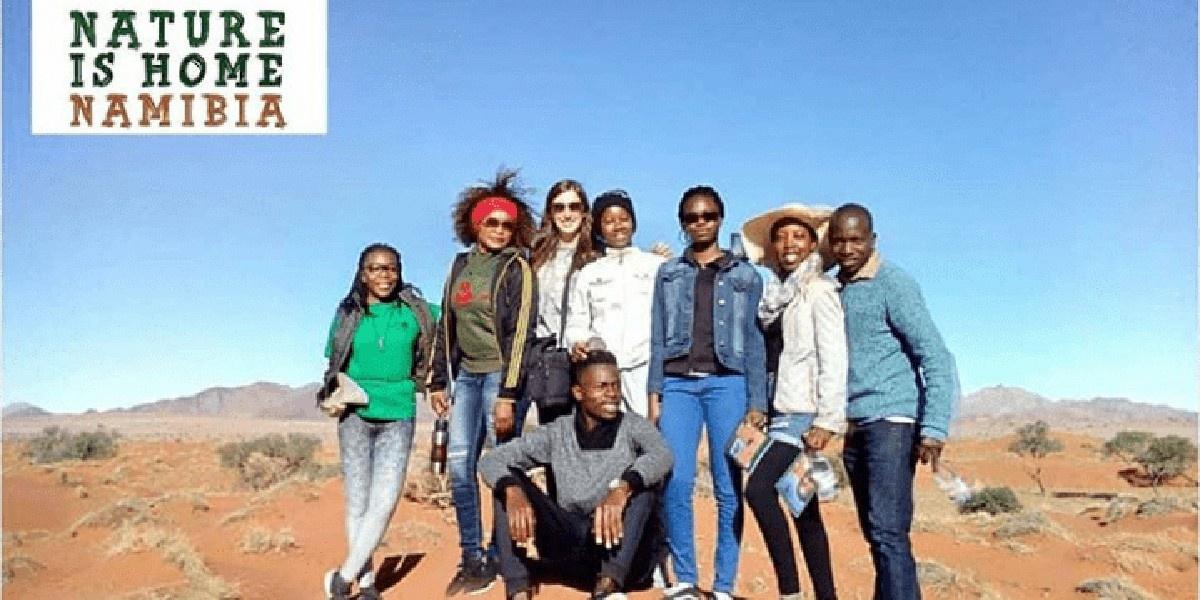Sustainable Living Is Possible
There is a great African proverb that we live by at Nature is Home Namibia, it states, “There is no division between nature and humanity”.
Nature is Home Namibia is a project that aims to produce eco-products and promote a nature loving society. We currently make and sell reusable shopping bags. It is important to live sustainably and in harmony with the environment, because after all our survival depends on the earth. Sustainable development aims to meet the needs of the present without compromising the ability of future generations to meet their own needs. And it is for the future generation that we are all tasked with caring for our environment.
I was fortunate enough to be selected as a participant at the recently concluded solar cooking and sustainable living workshop conducted by NaDEET, Think Namibia and the Hanns Seidel Foundation. As an aspiring eco-entrepreneur I was not only fortunate but also delighted to meet fellow youth who are equally as passionate about nature as I am. I met intelligent and brilliant individuals willing to drive change in their communities and they all share the same sentiments towards creating a greener, pollution free environment. Among the individuals I engaged with are aspiring eco-entrepreneurs with amazing ideas. The workshop was very informative, insightful and educative on issues relating to sustainable energy and all the lessons were aimed at addressing the UN Sustainable Development Goals and how they are all connected.
The workshop not only theoretically taught us about solar cooking and sustainable living, but at NaDEET Centre we actually got to practice sustainable living and solar cooking. We had an opportunity to witness first-hand how human beings can have a great impact on the environment.
On a daily basis, we measured our enviro footprint, by investigated the amount of resources we used. For instance, we measured our electricity consumption, monitored our solar system, pollution produced from cooking and did daily water count. Water use drastically went down from 33L per person to only 17L p/p on the last day. This shows that when people become aware of the impact they have on the environment, they make better decisions on how they use the Earth’s resources.
We received lessons on solar cooking and cooking on fuel-efficient stoves. I never really thought solar cooking was efficient or that it could compare to other forms of cooking such as using electrical stoves, but after using the solar cooking devices at NaDEET, I now realize that solar cooking is actually the best choice to go with. Solar cooking is the simplest, safest and most convenient way to cook food without consuming fuels and it also does not release any gases that contribute to greenhouse gases – solar is a clean source of energy. I also won myself a solar cooker at the workshop, which I plan on using as a daily form of cooking.
How a solar oven works:
“Solar cooking is done by means of the suns UV rays. A solar cooker lets the UV light rays in and then converts them to longer infrared light rays that cannot escape. Infrared radiation has the right energy to make the water, fat and protein molecules in food vibrate vigorously and heat up. The rate or time of cooking.”
Another part of the workshop that was also very interesting was their waste management practices. As an Environmental Health Sciences student, waste management is important to me, because if waste is well managed and is not allowed to accumulate and cause pollution, many public health problems are prevented. At NaDEET Centre, they have remarkable waste management strategies. The waste is sorted into plastic, paper, glass and tin, “burnable” and compost. The compost is leftover food that is sorted into “cooked” and “uncooked” compost, which is used as fertilizer. The paper is recycled and is used to make “fireballs” that can be used in the place of firewood.
The fact that the Centre is situated in a dune valley in the Namib Desert is another good thing. Participants had the chance to learn about biodiversity and experience the beautiful nature of the Namib Desert. I have personally learned so much from this experience or workshop and it has opened my eyes on the importance of sustainable living. I plan to educate as many people as I can on the new knowledge I have acquired. I hope that more young people from different communities especially those from disadvantaged communities can get an opportunity to attend similar workshops at the NaDEET Centre.
-By Landi Moses-
When you subscribe to the blog, we will send you an e-mail when there are new updates on the site so you wouldn't miss them.
